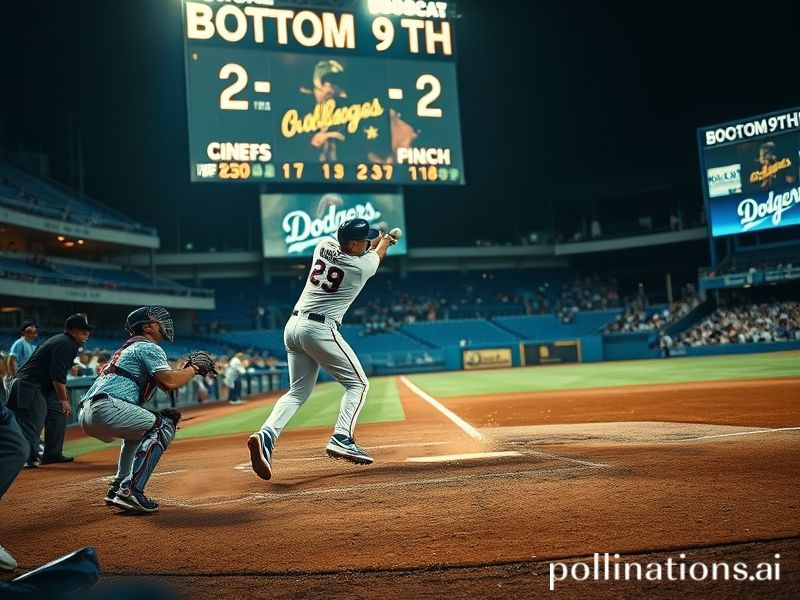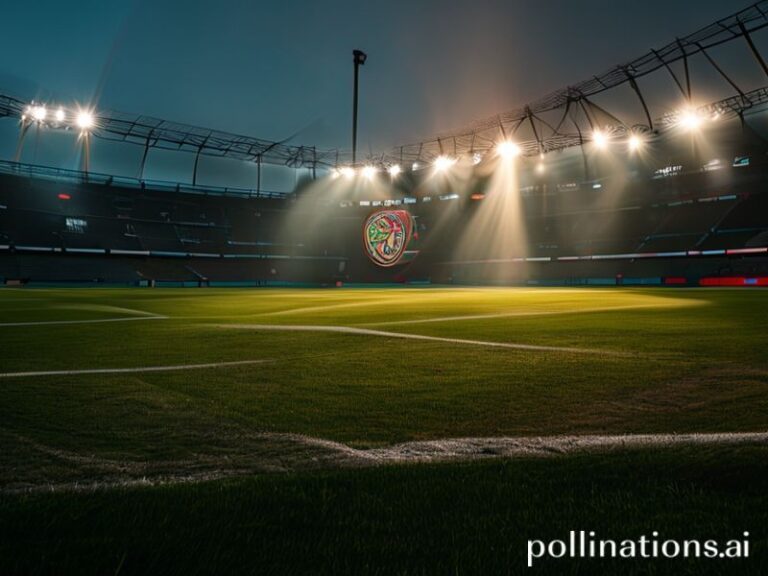Phillies vs Dodgers: The World Series of Existential Dread, Now Streaming Globally
Phillies vs Dodgers: When Two American Pastimes Collide and the World Pretends to Care
By the time the first pitch is thrown in Citizens Bank Park, Tokyo’s stock market will already be digesting yesterday’s collateral damage, Lagos commuters will be negotiating yet another fuel-price hike, and a Berlin barista will be spelling “Phillies” with three Ls on a bored tourist’s latte. In other words, the planet will keep rotating even as 50,000 Philadelphians scream themselves hoarse over a sport most of humanity files somewhere between monster trucks and competitive cheese-rolling.
Yet the Phillies-Dodgers rivalry—now entering its 137th year of mutual loathing, or what Americans romantically call “storied tradition”—matters more than it has any right to. Not because baseball is sweeping the globe like k-pop or fentanyl, but precisely because it isn’t. The contest is a living fossil, a 19th-century pastoral hallucination stubbornly broadcast in 4K to an audience that no longer farms or reads box scores without an accompanying betting app. Its persistence is the joke; our compulsion to watch anyway is the punchline.
From the International Space Station, the game looks like any other night-time cluster of stadium lights on the eastern seaboard. Down here on the blue marble, though, it’s a proxy war for two competing versions of late-capitalist decay. Philadelphia—birthplace of American democracy, current capital of opioid despair—fields a payroll north of $240 million, much of it paid to men whose elbows are held together by the same polymers used in F-35 landing gear. Across the diamond stand the Dodgers, Hollywood’s home team, owned by an insurance conglomerate so diversified it probably indemnifies the stadium against the very wildfires that will eventually devour Los Angeles. Nothing says “pastoral sport” quite like actuarial tables.
The global implications, such as they are, arrive via supply chain. Ninety-four percent of MLB bats now come from northern white ash harvested in the dwindling forests of New York and Pennsylvania. Each swing that produces a majestic home run accelerates deforestation, which in turn fuels the climate-driven hurricanes that will, in a few Octobers, postpone the World Series entirely. It’s the circle of life, sponsored by a Japanese electronics firm and streamed on a Chinese-made phone assembled by workers who have never seen a baseball.
Overseas viewers tuning in on MLB’s proprietary streaming service will notice the same four commercials recycled endlessly: a crypto exchange that just filed for Chapter 11, a pickup truck too large for any European road, a fast-casual salad chain nobody in the stadium can actually afford, and the U.S. Marines, whose recruiting pitch has become indistinguishable from a Call of Duty trailer. Somewhere in a Kyiv bomb shelter, a Ukrainian teenager watching on a cracked screen is presumably comforted by the knowledge that freedom itself depends on whether Bryce Harper can turn on a 99-mph fastball.
And then there’s the betting. Thanks to a patchwork of newly legalized sports-gambling jurisdictions, every pitch now fluctuates like a Turkish lira. London hedge funds have hired quants who cut their teeth on credit-default swaps to model the probability of a seventh-inning mound visit. In Singapore, an octogenarian grandmother places her first-ever wager because the mobile app offered her a free bobblehead NFT. The line between sports and market manipulation hasn’t been this thin since the 1919 Black Sox scandal, but at least that one had the decency to involve actual criminals.
What does it all mean? Probably nothing. The Phillies will win, or the Dodgers will, and either way the losing city’s talk-radio hosts will demand mass trades by sunrise. The winning city will claim temporary supremacy in a game whose rules were codified before the invention of the zipper. Meanwhile, glaciers will continue to calve, democracies to wobble, and next year’s Opening Day will arrive like a dentist appointment you forgot to cancel.
Still, for three hours on a muggy weekday, the planet’s most powerful nation will pause its slow-motion self-immolation to argue about a checked swing. If that isn’t a form of international aid—exporting harmless distraction in exchange for advertising revenue—then I’ve misread the balance of trade. Pass the Cracker Jack and try not to think about the microplastics.







